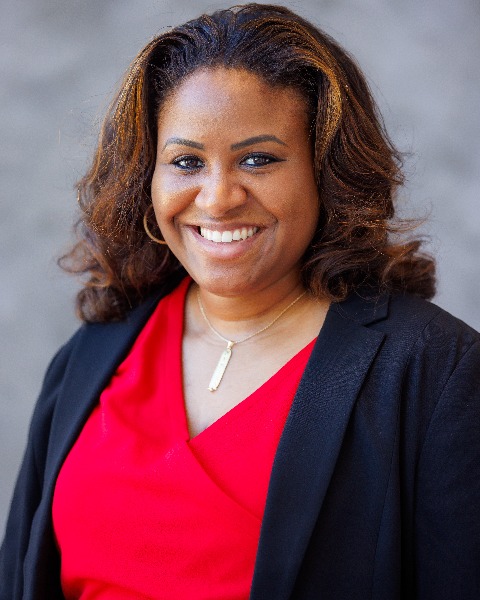Poster Presentation
Social Justice and Health Equity
Thursday Poster Power Hour
THURS-045 - Resource Recommendations Needed for College Students with Type 1 Diabetes to Achieve Health Equity
Thursday, April 17, 2025
11:45 AM - 12:45 PM PST
Location: Pacific I/II, 2nd Floor
Area of Responsibility: Area V: Advocacy
Subcompetencies: 5.1.3 Identify factors that facilitate and/or hinder advocacy efforts (e.g., amount of evidence to prove the issue, potential for partnerships, politi, 5.1.5 Identify existing coalition(s) or stakeholders that can be engaged in advocacy efforts.
Research or Practice: Research
Subcompetencies: 5.1.3 Identify factors that facilitate and/or hinder advocacy efforts (e.g., amount of evidence to prove the issue, potential for partnerships, politi, 5.1.5 Identify existing coalition(s) or stakeholders that can be engaged in advocacy efforts.
Research or Practice: Research

Ny'Nika T. McFadden, PhD (she/her/hers)
Assistant Professor of Public Health
Texas State University
San Marcos, Texas, United States
Poster Presenter(s)
Learning Objectives:
At the end of this session, participants will be able to:
- describe two ways that university dining hall facilities can provide resources for college students living with Type 1 Diabetes to assist with self-management.
- describe two ways that the healthcare system can improve health equity for college students living with Type 1 Diabetes.
- describe the importance of reducing the stigma of living with Type 1 Diabetes.
Detailed abstract description: Previous research has shown that college students living with Type 1 Diabetes (T1D) experience barriers that impact their self-management. However, limited studies have qualitatively explored resource recommendations needed to reduce barriers and improve health equity for full-time college students living with T1D. Therefore, this study involved conducting one-on-one interviews with 31 college students enrolled in five large four-year universities in the Southeastern United States. Mean age was 20.13 years (SD = 1.28), most self-identified as White (n = 27), classified as a senior (n=10), and identified as a woman (n = 18). Mean time living with T1D was 7.94 (SD = 1.29) years. Data were collected using a semi-structured interview guide to explore the research question, 'What resources do full-time college students living with Type 1 Diabetes need to improve their self-management?' Most interviews (n=27) were conducted on Zoom; the remaining interviews occurred in-person. Interview transcripts were transcribed verbatim and uploaded into NVivo for data management. Data analysis included two coders reviewing the interview transcripts to identify prominent themes. A third coder was available to discuss coding discrepancies. The research team identified three themes, which included 1) Increase University Dining Support, 2) Decrease Type 1 Diabetes Stigma, and 3) Improve Healthcare System Support. Participants discovered challenges with regulating their blood sugar levels due to limited nutritional information provided by their dining hall, which caused hyperglycemia episodes and inaccurate insulin dosing. University dining halls should consider making nutritional facts of the meals served accessible and enable access to consult with nutritional specialists to minimize insulin administration and high blood sugar concerns. College students with T1D were also concerned with the general public's limited knowledge about T1D and felt that they received decreased medical and social support due to the public's misconceptions of living with an autoimmune condition. Therefore, more awareness through education is needed for the public about T1D and ways to provide medical and social support for individuals with T1D. Also, participants reported low literacy about their health insurance and requested additional patient education support to sustain health literacy and self-management behaviors. Healthcare facilities could consider providing courses long-term to improve and sustain literacy about health insurance, carbohydrate counting, and ways to overcome management challenges. Despite the complexities of managing T1D as a full-time college student, advocacy is still needed in university, public, and healthcare settings to improve health equity.
